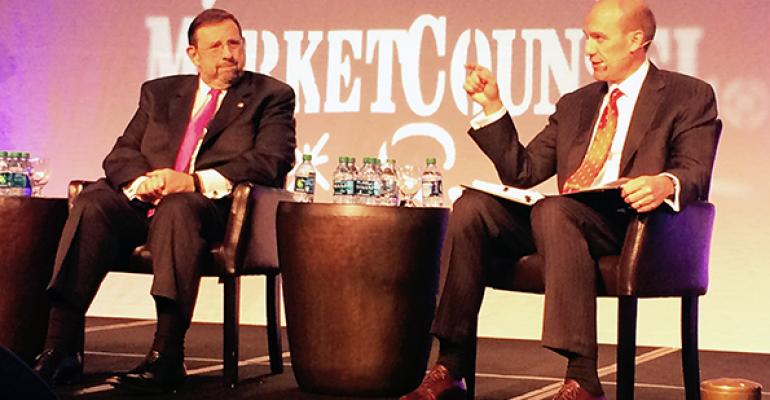
Every single investment advisory firm registered with the Securities and Exchange Commission should be examined every year, said Harvey Pitt, the former SEC commissioner, and the SEC should certify outside auditors to conduct the exams.
“I think the paradigm should be having an annual compliance audit, just the way public companies have financial audits on a yearly basis,” Pitt said on a panel at the MarketCounsel conference on Tuesday. “The SEC could, if it oversaw the process, have firms certified that have the expertise, knowledge and independence to come up with a report.”
The idea of using private third-party examiners to audit RIA firms was first floated by SEC commissioner Dan Gallagher earlier this year.
“The downside of the proposal is that someone would have to pay for this examination. It most likely would be those in the industry,” Pitt said. There could be exceptions made for smaller firms, he suggested.
Pitt dismissed the notion that a “better-funded” SEC could perform the exams. “If you took all the people at the SEC, including the commissioners, and deployed them to examination process, there still wouldn’t be enough,” he said, referring to Rep. Maxine Waters bill that would allow the SEC to collect user fees from firms. “I think that money could be better used to select a certified annual compliance audit firm,” Pitt said.
Currently, only about 9 percent of SEC-registered advisory firms are examined annually. The SEC conducts those 1,000 exams with a staff of 450 examiners—each examiner performing two audits a year. “That doesn’t seem like an efficient process,” said Skip Schweiss, managing director of advisor advocacy at TD Ameritrade Instutional, who spoke on the panel with Pitt. The idea of third-party examinations is “our next best possibility,” he said. “The status quo is not tenable. We have to push beyond it.”
A majority of the current exams usually produce a “deficiency letter” from the agency, basically pointing out areas where the firm is lax in their processes or compliance. “Right now there is so much pressure riding on these 1,000 investigations, many become a precursor to enforcement actions. The process should be to assist firms and investors as opposed to playing “gotcha,” said Pitt.
Though no RIA firm likes the idea of going through an audit, “you won’t give the public comfort without a completely different regiment than the one we have now,” Pitt said.




